Azure AKS has alot of functionality that can simplify identification with its built in (but not enabled by default) Entra integrations. This includes federated workload identity scenarios, where federation to a secretless identity allow easy and secure connection to Azure resources.
But it also allow more administrative focused ones where Entra Id and Entra RBAC are used to authorize access to the Kubernetes API of the AKS Mangement plane.
This allow kubectl, or other Kubernetes API based tools, authenticating and authorization using Azure Entra RBAC and Entra login with MFA.
Headlamp
Headlamp is a great Kubernetes Dashboard alternative. It can be deployed as a desktop tool.
But more interestingly Headlamp can be deployed ‘In-cluster’ as a web application exposed via ingress. To get this scenario to work I had to do some configuration which is the base for this post.
AKS Authentication and Authorization
In this scenario our cluster will use ‘Microsoft Entra ID for authentication and Azure RBAC’ for authentication and authorization (--enable-aad and --enable-azure-rbac).
OIDC
Headlamp, unlike Kubernetes Dashboard, actually do have OIDC (OpenID Connect) support built in. At first that sounds great but currently it does not work with Entra Id.
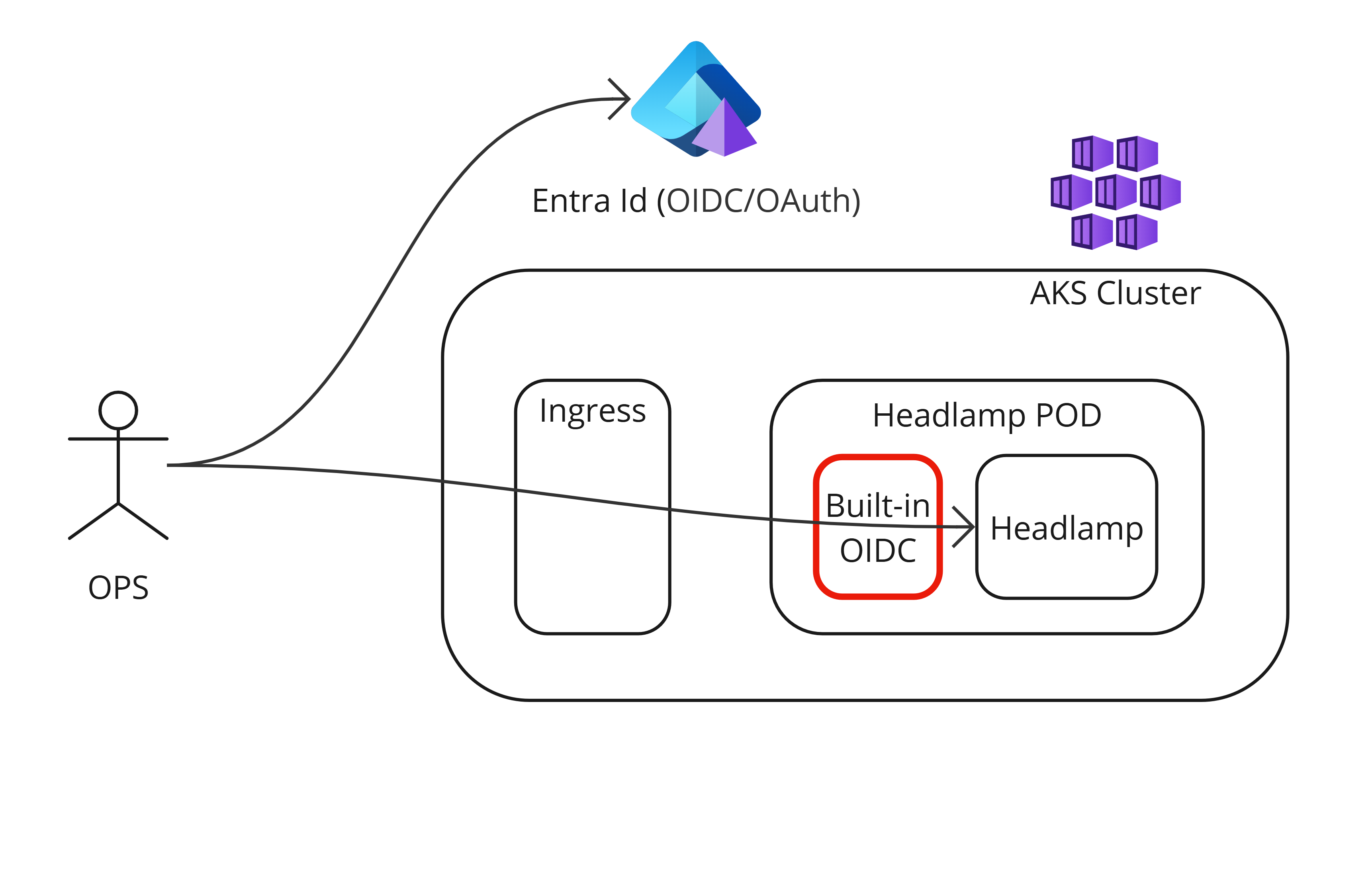
The root cause is that Headlamp after identification will place the users OIDC id-token, and not the access-token, in the Authorization header which then is passed along to the Kubernetes API. The id-token simply does not contain information on what roles you have as the purpose of the id-token is not related to authorization.
Solution
Lets use the popular identity proxy OAuth2Proxy that can protect workloads lacking OIDC/OAuth support. But we can use it here also for its capability to explicitly use the Entra access-token and not the id-token.
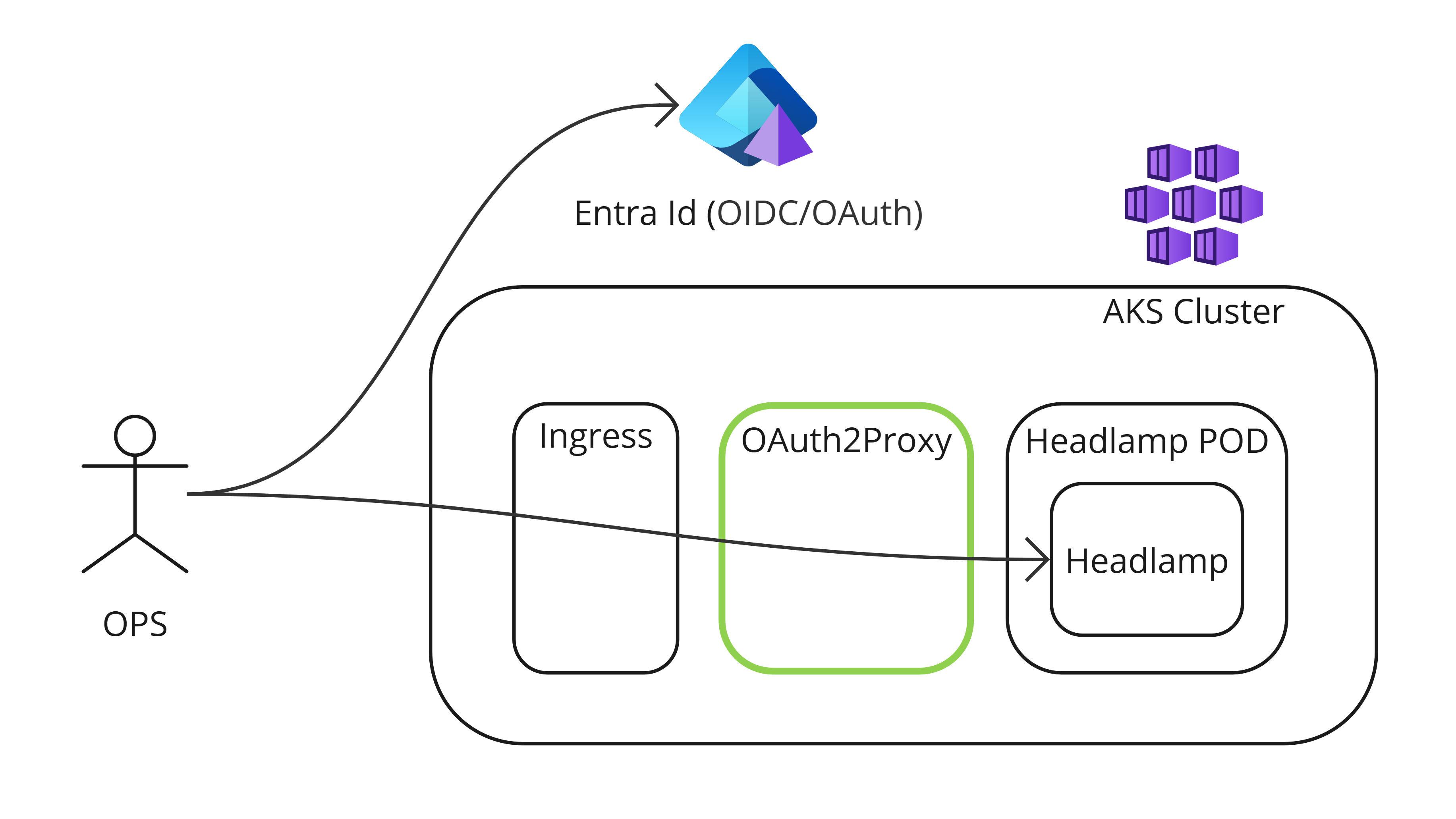
Entra Id
-
Add a client-secret (or preferably an identity federation to a workload identity which is supported in OAuth2Proxy)
-
Add redirect URL as
https://{your-ingress-domain-for-headlamp}/oauth2/callback -
Give your Entra
Application Registrationrepresenting the Headlamp Web application, delegated API Permissions toAzure Kubernetes Services AAD Server. This built in application will allow us to request an token in the scope of Azure AKS. Note the ‘id’, this is a built-in application id that we will need later configuring OAuth2Proxy.
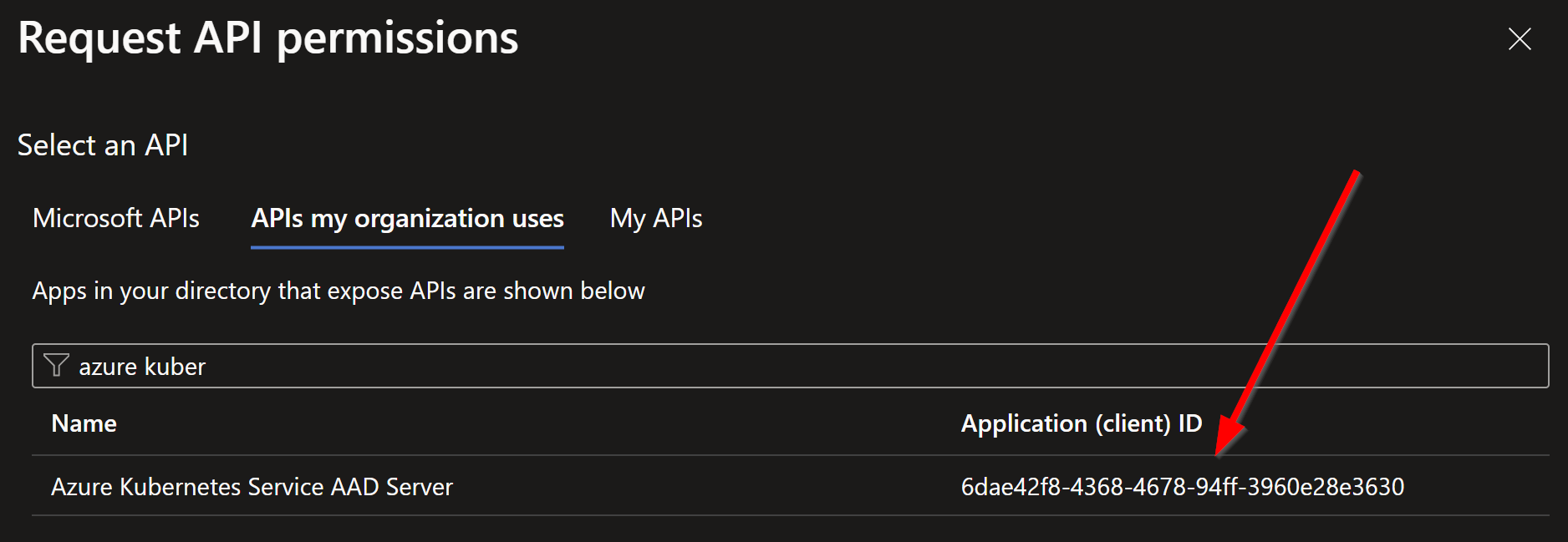
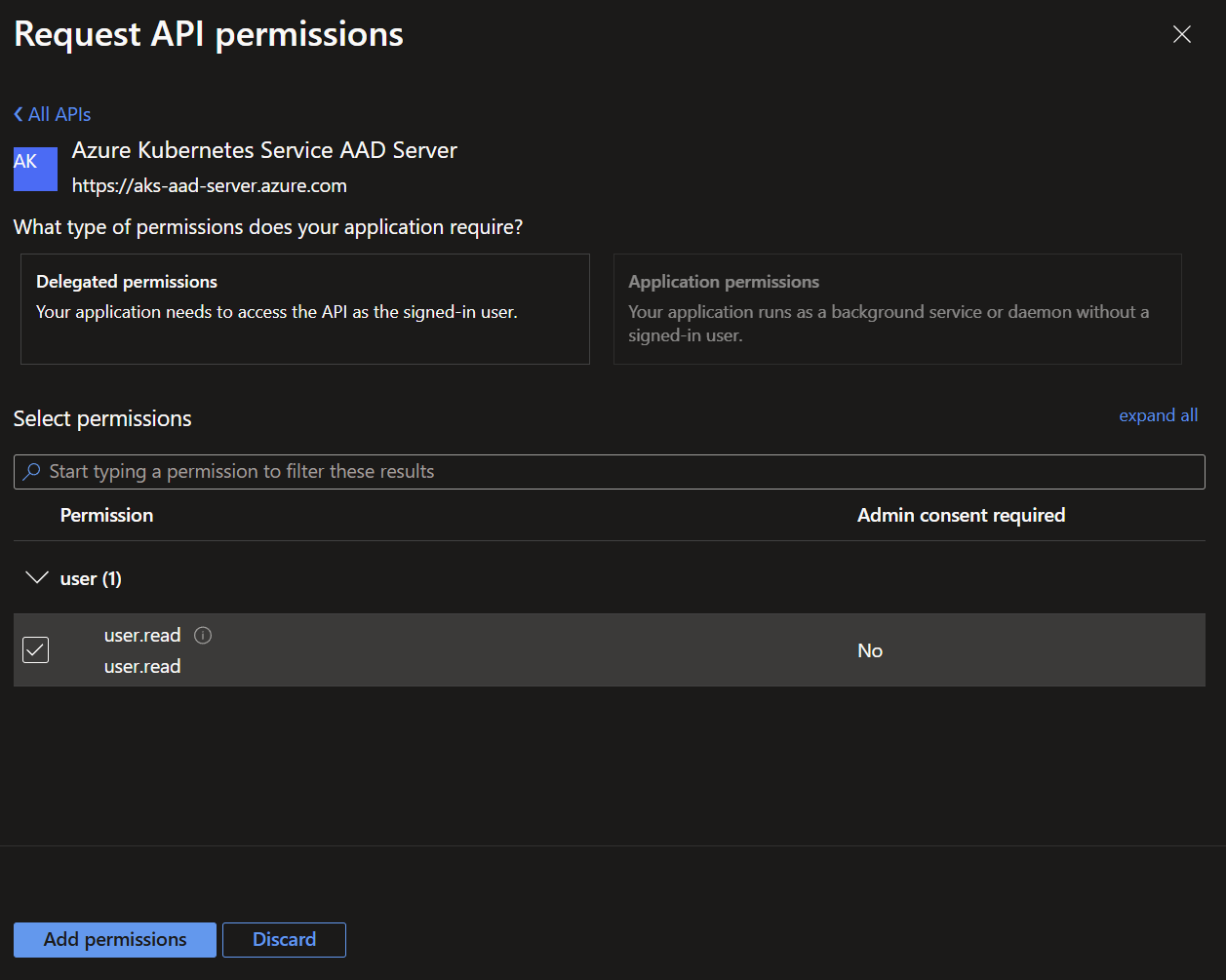
Do not forget to Grant Admin Consent for your tenant
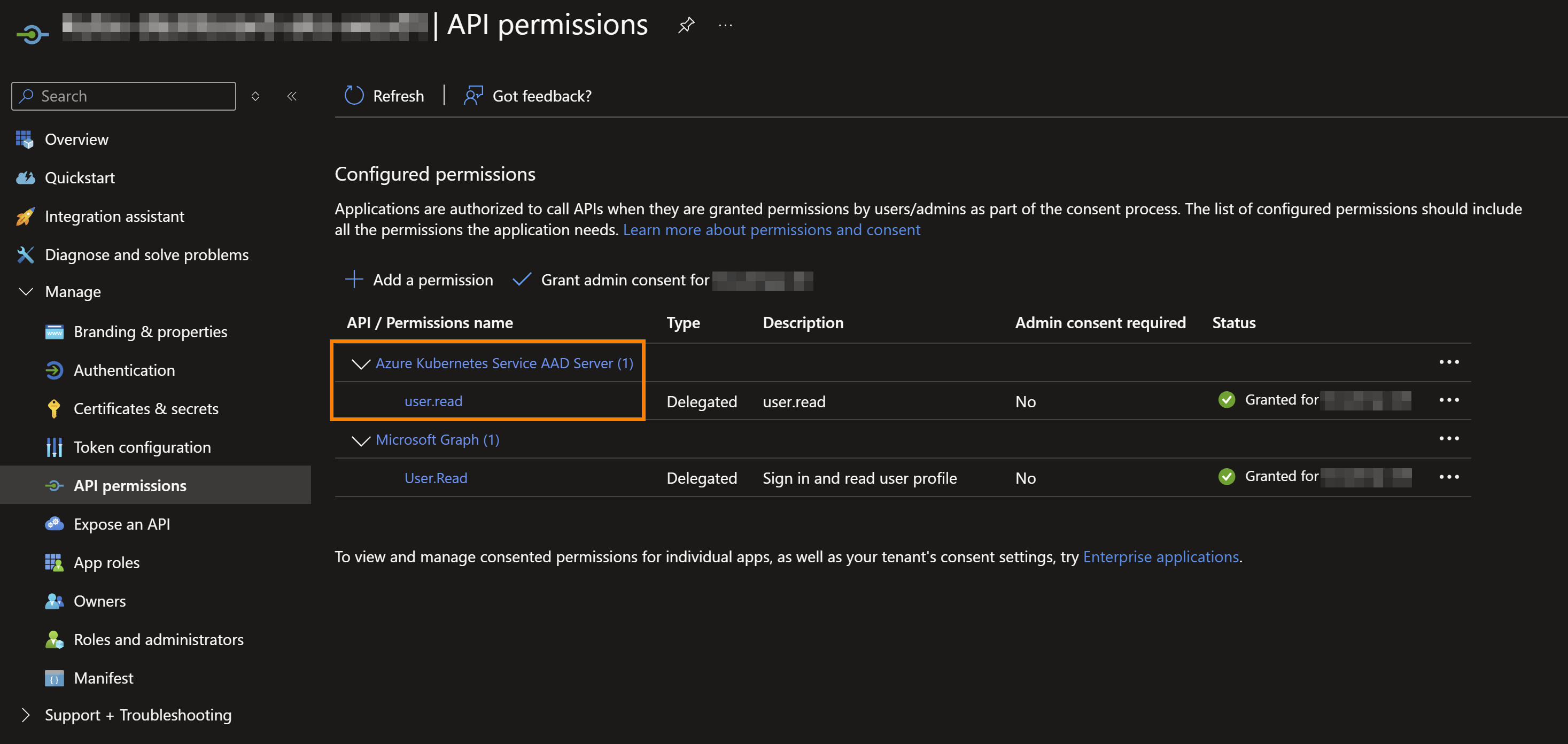
Headlamp
No special configuration needed
OAuth2Proxy
There are two main areas that needed attention.
- Request your access tokens with the scope ‘Azure Kubernetes Service AAD Server’. Use scope
6dae42f8-4368-4678-94ff-3960e28e3630/user.readfor this. - Specifically inject the
access_tokenin the Authorization header. To do this you must use the new shiny OAuth2Proxy configuration called Alpha Configuration.
Example config map
Configure OAuth2Proxy with values from my example with a ConfigMap below.
Use Helm directly with a values file or go for GitOps using Flux HelmRelease where you inject ConfigMap and secret.
Also inject your ClientSecret in alphaConfig.configData.providers[0].clientSecret. Or even better - go secretless with its support for FederatedTokenAuth/Workload Identities.
apiVersion: v1
kind: ConfigMap
metadata:
name: oauth2proxy-headlamp-configmap
data:
values.yaml: |
config:
configFile: |-
email_domains = [ "*" ]
extraArgs:
reverse-proxy: true
skip-provider-button: true
silence-ping-logging: true
cookie-refresh: "15m"
cookie-expire: "12h"
alphaConfig:
enabled: true
configData:
providers:
- id: entra
provider: oidc
clientID: "..."
#clientSecret: "not-here-its-better-to-use-federatedTokenAuth"
scope: "6dae42f8-4368-4678-94ff-3960e28e3630/user.read openid email profile User.Read"
oidcConfig:
issuerURL: "https://login.microsoftonline.com/..your-tenant.../v2.0"
insecureAllowUnverifiedEmail: true
emailClaim: email
audienceClaims:
- aud
injectRequestHeaders:
- name: Authorization
values:
- claim: access_token
prefix: "Bearer "
upstreamConfig:
upstreams:
- id: main
path: /
uri: http://headlamp:80
Now when the ingress hit OAuth2Proxy it will redirect to Entra and make sure the correct header is proxied to Headlamp and Entra RBAC roles will dictate my access.